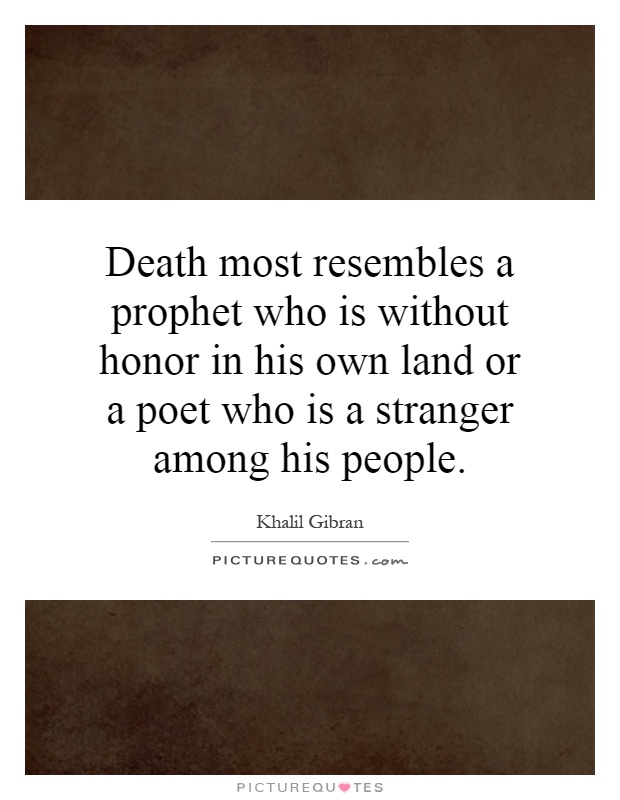Death most resembles a prophet who is without honor in his own land or a poet who is a stranger among his people

Death most resembles a prophet who is without honor in his own land or a poet who is a stranger among his people
Khalil Gibran, a Lebanese-American poet, writer, and philosopher, is often considered a prophet in his own right. His words have inspired millions around the world with their profound wisdom and insight into the human condition. However, like many prophets and poets before him, Gibran faced criticism and rejection in his own homeland.The quote "Death most resembles a prophet who is without honor in his own land or a poet who is a stranger among his people" can be seen as a reflection of Gibran's own experience. Born in Lebanon in 1883, Gibran faced a great deal of adversity and hardship throughout his life. His family struggled financially, and he faced discrimination and prejudice as a young man. Despite these challenges, Gibran's talent and passion for writing shone through, and he eventually found success as a poet and artist.
However, even as his work gained recognition and acclaim around the world, Gibran was often dismissed and overlooked in his own country. Some critics accused him of being too Westernized or out of touch with his Lebanese roots. Others simply did not understand or appreciate the depth and complexity of his writing. In many ways, Gibran was a prophet without honor in his own land, a poet who was a stranger among his people.
Despite this lack of recognition in Lebanon, Gibran's work has endured and continues to resonate with readers of all backgrounds. His most famous work, "The Prophet," has been translated into over 100 languages and has sold millions of copies worldwide. Gibran's words on love, friendship, and spirituality have touched the hearts of countless individuals and have inspired generations of artists, writers, and thinkers.












 Friendship Quotes
Friendship Quotes Love Quotes
Love Quotes Life Quotes
Life Quotes Funny Quotes
Funny Quotes Motivational Quotes
Motivational Quotes Inspirational Quotes
Inspirational Quotes